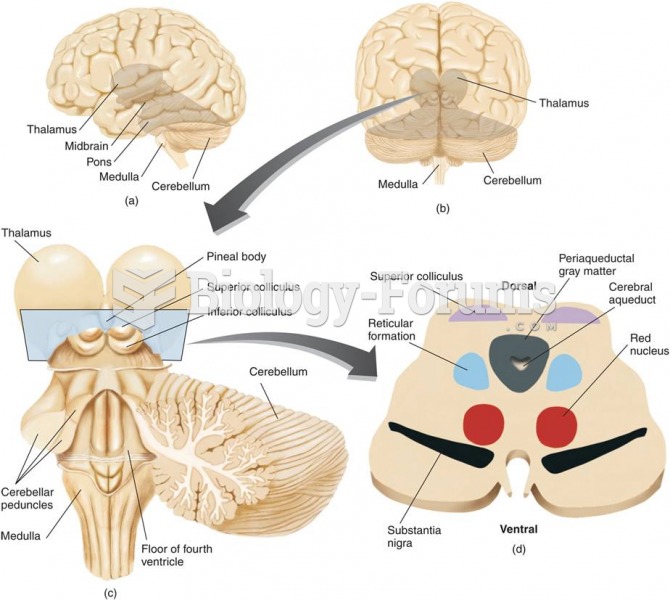|
|
|
There are more nerve cells in one human brain than there are stars in the Milky Way.
Cytomegalovirus affects nearly the same amount of newborns every year as Down syndrome.
Pink eye is a term that refers to conjunctivitis, which is inflammation of the thin, clear membrane (conjunctiva) over the white part of the eye (sclera). It may be triggered by a virus, bacteria, or foreign body in the eye. Antibiotic eye drops alleviate bacterial conjunctivitis, and antihistamine allergy pills or eye drops help control allergic conjunctivitis symptoms.
After 5 years of being diagnosed with rheumatoid arthritis, one every three patients will no longer be able to work.
The heart is located in the center of the chest, with part of it tipped slightly so that it taps against the left side of the chest.







